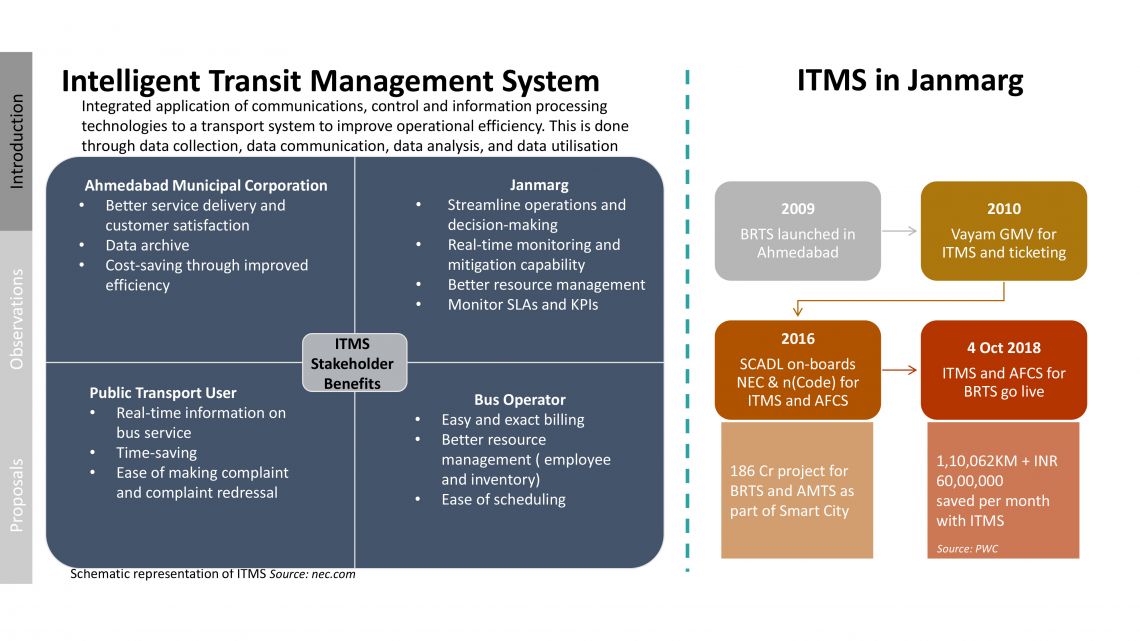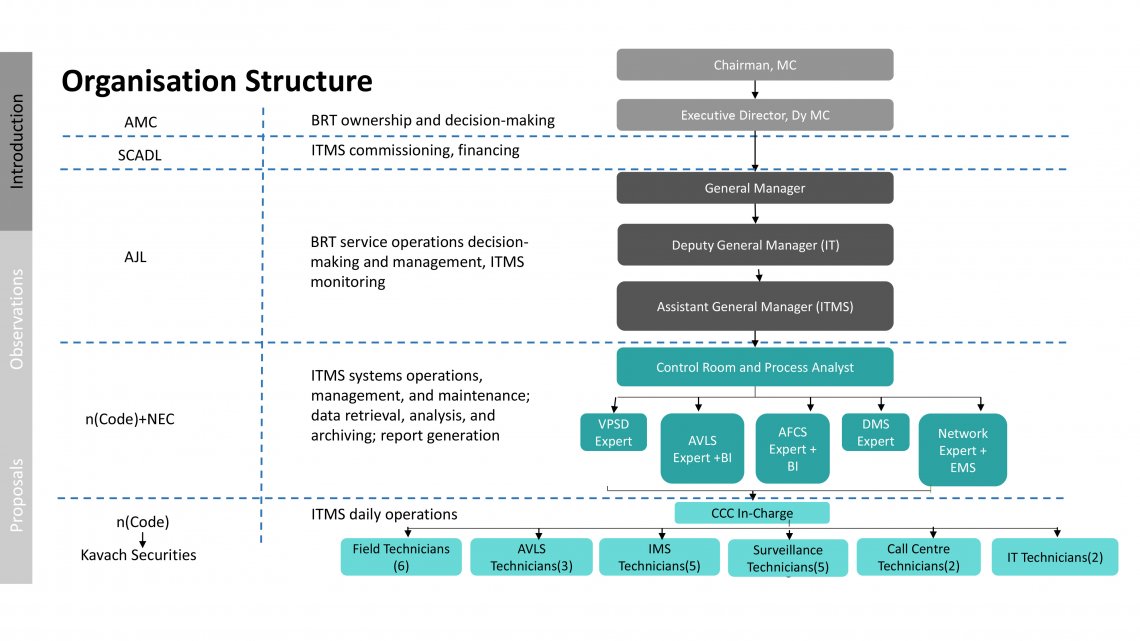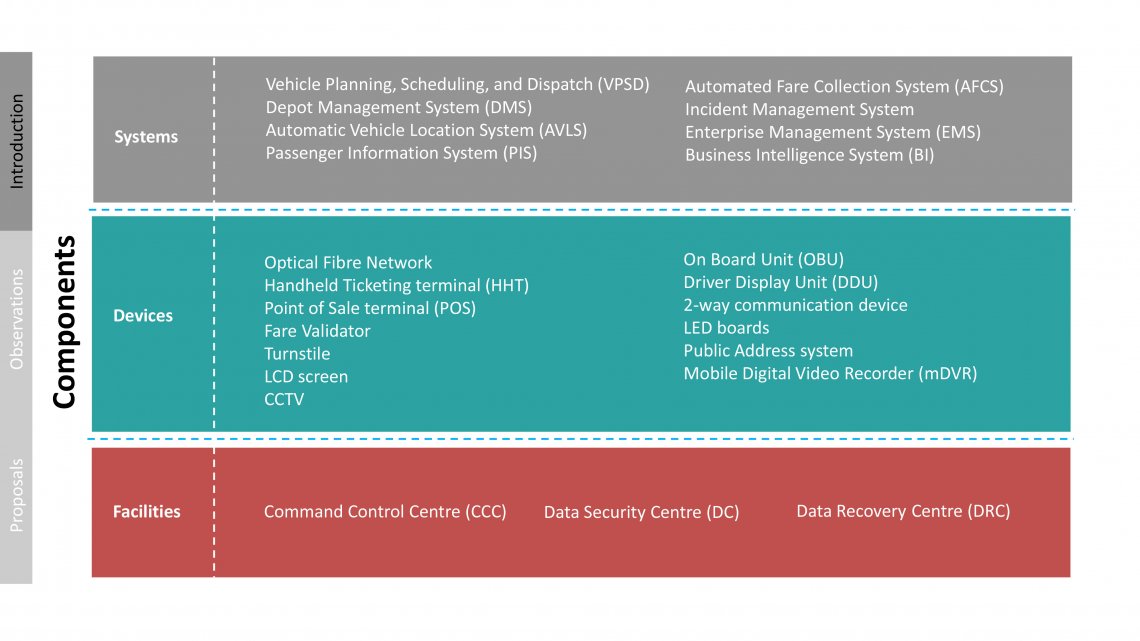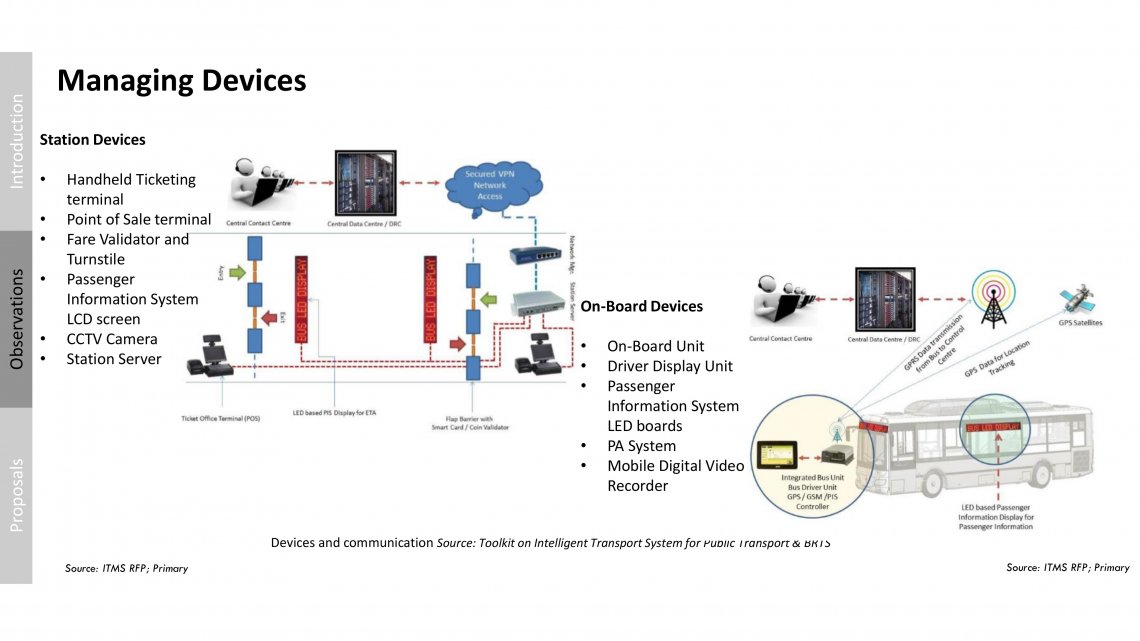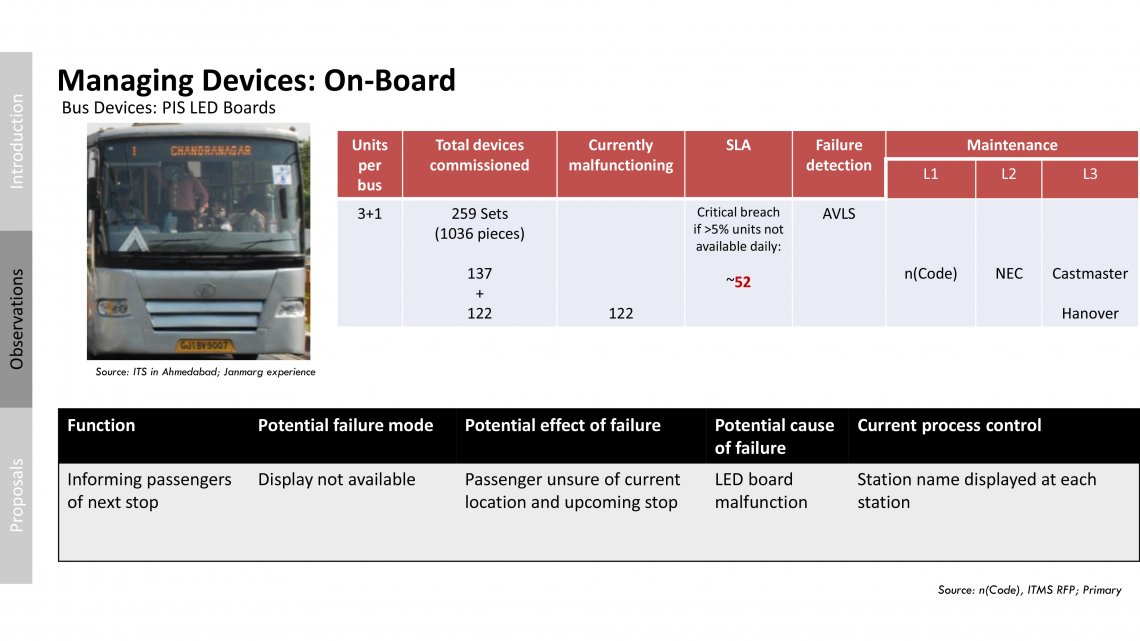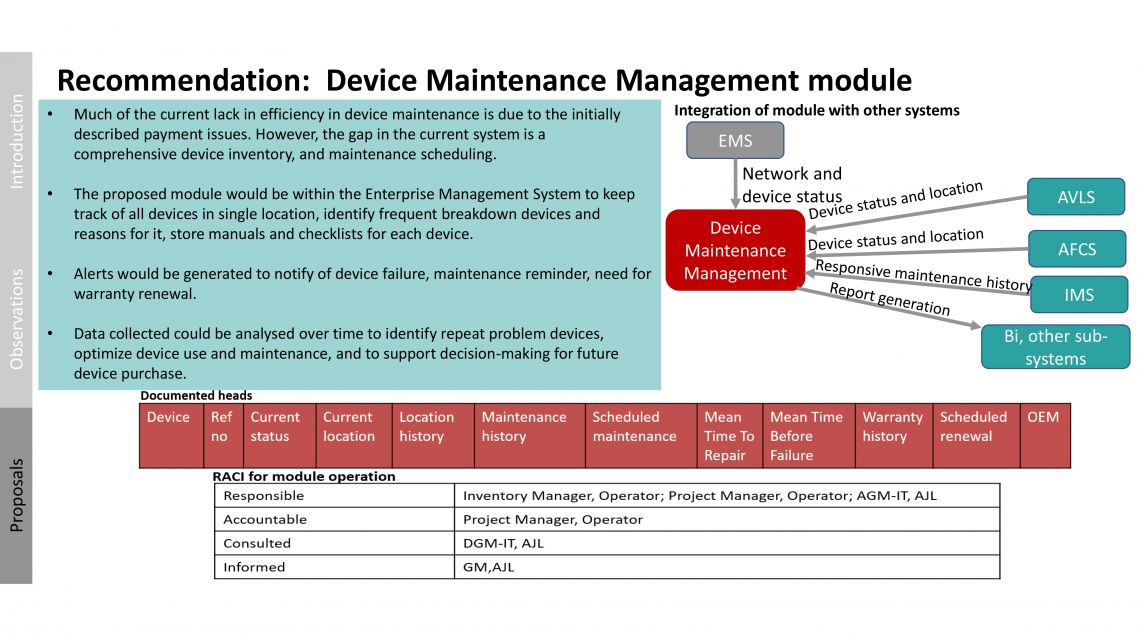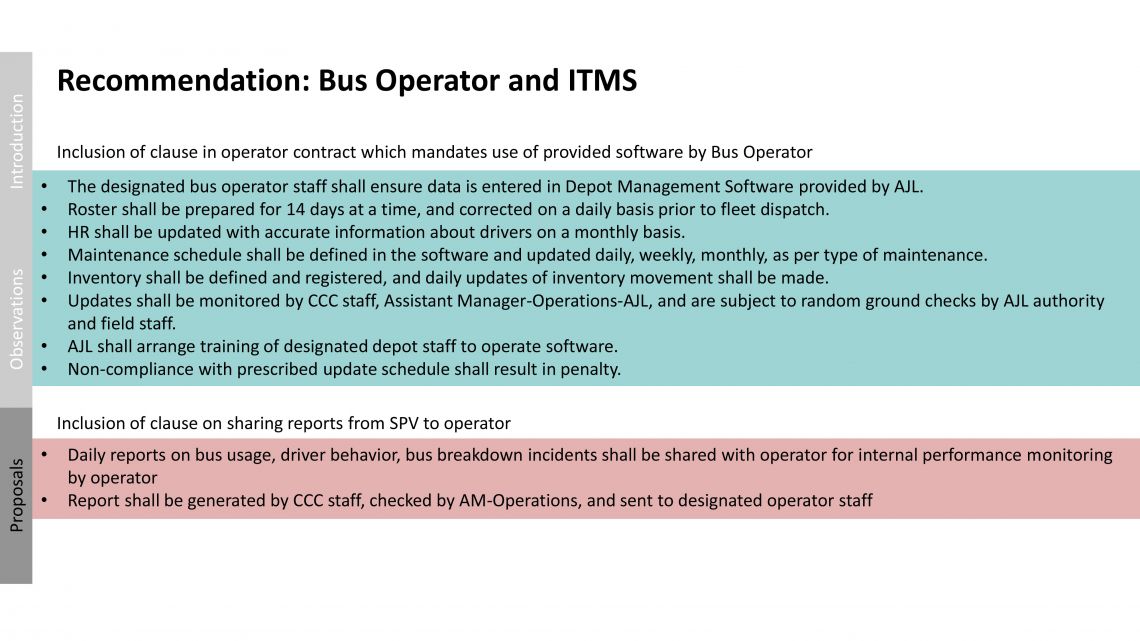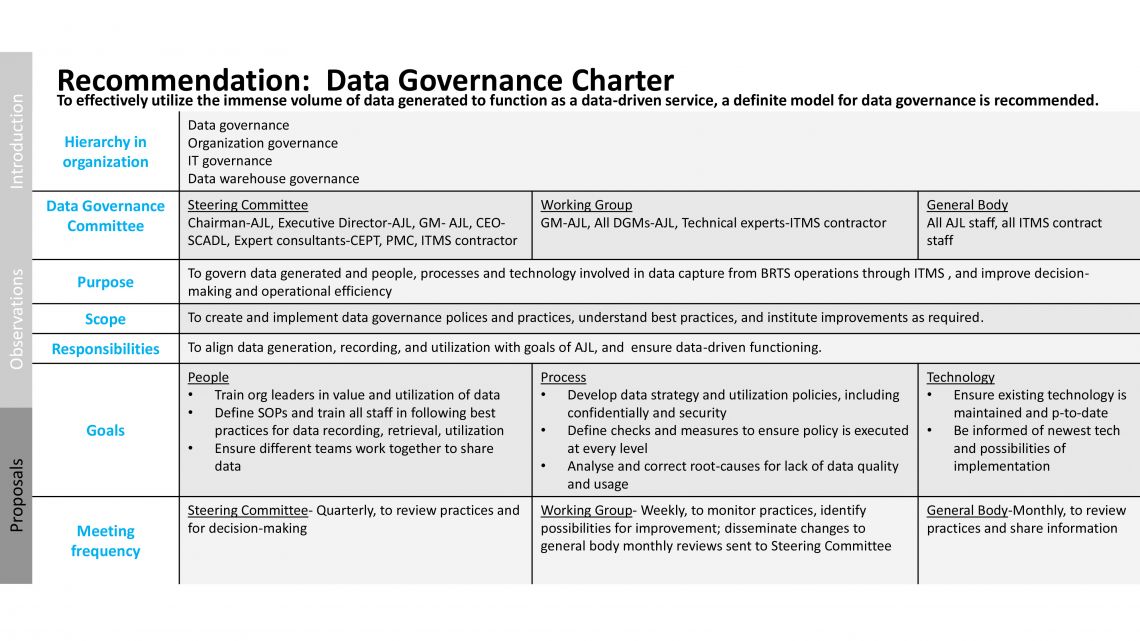Your browser is out-of-date!
For a richer surfing experience on our website, please update your browser. Update my browser now!
For a richer surfing experience on our website, please update your browser. Update my browser now!
As part of the service operations management studio, the Bus Rapid Transit System of Ahmedabad was studied. The Intelligent Transit Management Systems are a core sector which improves operational efficiency. This project exmaines the current functioning of the system, identifies gaps in the process and system,and puts forward recommendations.
